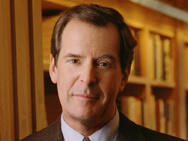Triviality. The American Heritage Dictionary meaning of that word is:
"Lack of importance, inconsequence, insignificance, unimportance."A very perceptive friend recently commented to me about the "trivialization" of serious things, like rape, slavery, harassment, heroism. And she meant that it was done by women. Western women.
Yeah, this is going to offend some women, but I don't care. It's time some of them grow up and quit whining.
This
comment by a lefty visitor here gave food for thought on this post. Regarding the atrocities committed against Muslim women, the commenter lamely attempted to compare "atrocities" done here in the US to its women! Here is the most egregious remark she made:
"How much did the government spend on breast cancer research last year? How much on prostate cancer? One report from the NATIONAL CANCER SOCIETY (a "you people" organization no doubt) states that comparitively speaking (in terms of numbers diagnosed) that the government is contributing approximately 60% as much for breast cancer research as it does for prostate cancer research. Is that an atrocity? you may not think so, maybe I don't even think so... some might... depends on if it's important to you or not I guess." (Misspelling is hers)
Yup, she was comparing the base treatment of women in non Western countries to the lack of funding for breast cancer in the US! And she's not even "sure" if it's an atrocity, but she used it as defense of her position. The gist of her thinking (and I use that term lightly) is like this:
Woman in Iran: "My husband beat me for burning the lamb last night."
Woman in India: "My father beat me for refusing to marry a man I do not like."
Woman in China: "My father sold me to a brothel because there are too many girls in the family."
Woman in US: "My father cut my allowance to $25.00 a week. I can't even afford a Louis Vuitton handbag with that kind of pittance!"She and so many other women in this country suffer from the same idiocy: an inability to comprehend the ENORMITY of disparity between our culture and those of non-Western countries. Furthermore - and I blame feminists for this - they TRIVIALIZE
REAL CRIMES committed against women.
Case in point: Twice now this same commenter called anyone who challenged her to support her assertions "a schoolyard bully". I suppose when she was in grade school when the teacher corrected her by saying that 2+2=4, not 5, she ran home in tears and called her teacher a "bully". That sort of whiny hypersensitivity trivializes REAL bullying, which is when the biggest boy in the block beat up the smallest boy. Remember "A Christmas Story"? THAT kid was a bully.
Feminists also trivialize rape by asserting that when a college girl goes to a frat party, gets stinking drunk, goes into a room with one of the guys, sleeps with him, then gets kicked out of his room before dawn without a kiss, she was raped! Sorry, but I don't call that rape. I call that being sleazy, stupid and used.
Heroism has also been trivialized. A person who ran into a burning house and rescued a child trapped in a room was a hero. A Marine who dives on top of a grenade to prevent it from killing his squad is a hero. Those men who stormed the beaches of Normandy are heroes. Nowadays, feminists call any woman who writes a navel-gazing book about her "traumatic" childhood a "hero". Trivial drivel is more like it.
Remember poetry class in school? There was an 18th century poem written by an Englishman who truly exemplified the mightiness of the pen over the sword. His name was Alexander Pope, and his most popular work may have been the caustic "The Rape of the Lock", which, in mock-epic form, satirized the pettiness of 18th century society. I'll steal from SparkNotes to render a critique of this masterpiece:
The strategy of Pope's mock-epic is not to mock the form itself, but to mock his society in its very failure to rise to epic standards, exposing its pettiness by casting it against the grandeur of the traditional epic subjects and the bravery and fortitude of epic heroes: Pope's mock-heroic treatment in The Rape of the Lock underscores the ridiculousness of a society in which values have lost all proportion, and the trivial is handled with the gravity and solemnity that ought to be accorded to truly important issues. The society on display in this poem is one that fails to distinguish between things that matter and things that do not. The poem mocks the men it portrays by showing them as unworthy of a form that suited a more heroic culture. Thus the mock-epic resembles the epic in that its central concerns are serious and often moral, but the fact that the approach must now be satirical rather than earnest is symptomatic of how far the culture has fallen. (Emphasis mine).
The title itself proclaims the trivialization of what's important, assigning the cutting of a piece of hair as a "rape". Alexander Pope would find fertile ground in today's society. Here is what he writes when the Baron snips a lock of Belinda's hair:
Then flash'd the living Lightnings from her Eyes,
And Screams of Horror rend th' affrighted Skies.
Not louder Shrieks to pitying Heav'n are cast,
When Husbands or when Lap-dogs breath their last,
Or when rich China Vessels, fal'n from high,
In glittring Dust and painted Fragments lie! Yeah, she screams more about her purloined curl than for the death of a husband or a pet dog.
In the end, Pope eulogizes the fate of the poor lock, which takes its place in the heavens as a martyr to the crimes committed against women:
Then cease, bright Nymph! to mourn the ravish'd Hair
Which adds new Glory to the shining Sphere!
Not all the Tresses that fair Head can boast
Shall draw such Envy as the Lock you lost.
For, after all the Murders of your Eye,
When, after Millions slain, your self shall die;
When those fair Suns shall sett, as sett they must,
And all those Tresses shall be laid in Dust;
This Lock, the Muse shall consecrate to Fame,
And mid'st the Stars inscribe Belinda's Name! Silly isn't it? Another great writer coined a term for that kind of feminine hysteria: a tempest in a teapot.















